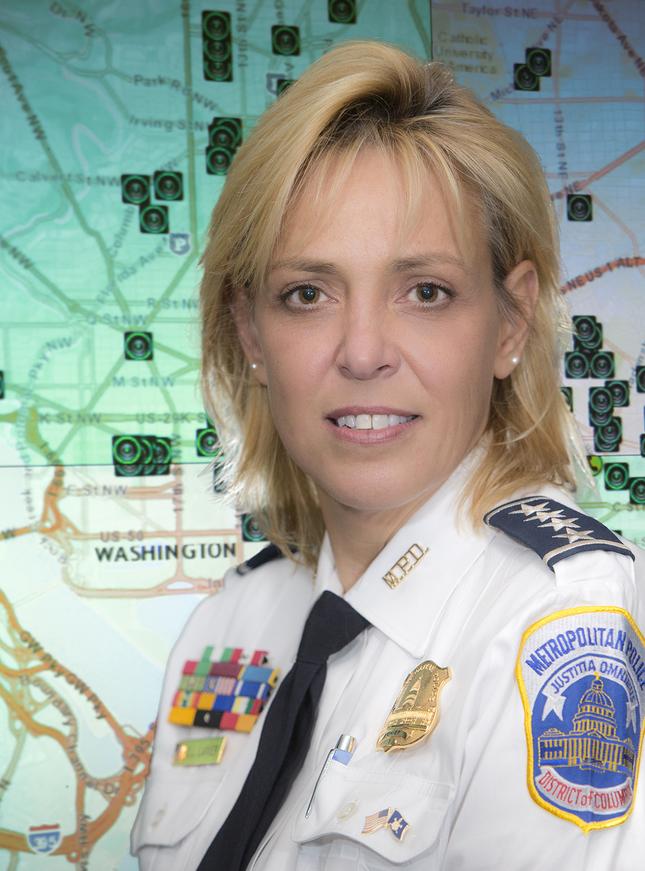D.C. Police Chief ‘s New Rule: Civilians Can ‘Take Gunman Down’
By • December 7, 2015 0 1146

By now, we are well aware that we live in dangerous times, and we have become familiar with the police and security official admonition to American citizens in a time of terror and violent crime.
“If you see something, say something.”
That familiar plea, usually accompanied by admonitions not to get involved in active crime scenes, or “active shooter” situations, may be changing. It appears to be heading toward “If you see something, do something.”
Metropolitan Police Chief Cathy Lanier took part in a “60 Minutes” segment, aired Nov. 22 and entitled “Active Shooter,” in which CBS News reporter Anderson Cooper interviewed Lanier, as well New York City Police Commissioner Bill Bratton and detective Raymond McPartland, a lead trainer with the NYPD Counterterrorism.
Lanier said—after describing the aftershocks of the 2013 Washington Navy Yard shootings, when a shooter killed 12 persons before being shot by law enforcement officers—that civilians who are a part of an active shooter situation have three options.
“Your options are run, hide or fight,” Lanier told Cooper, who noted that “according to the FBI, 60 percent of active shooter attacks are over before police ever arrive, so now law enforcement agencies throughout the country are trying to educate theory public on how to survive on their own.”
Asked by Cooper if that’s what she would tell people to do, she said yes. “What we tell them is the facts of the matter are that most active shooters kill most of the victims in 10 minutes or less, and the best police department in the country are going to be about a five-to-seven minute response,” Lanier said.
Lanier said that “getting out should be your first option, the best option.” Then, she added that “if you’re in a position to try and take the gunman down, to take the gunman out, it’s the best option for saving lives before police can get there. And that’s kind of counterintuitive to what cops always tell people, right? We always tell people, ‘Don’t … you know …don’t take action. Call 911. Don’t intervene in the robbery.’ We’ve never told people: ‘Take action.’ This is a different scenario.
“You’re telling them that now though?” asked Cooper of Lanier’s advice to intervene. “We are,” Lanier said.
When questioned by Cooper if she worried about overreaction, Lanier replied, “You can be prepared and you can have a society that is resilient and alert and conscientious and safer without scaring people.”
“You don’t want people to be afraid?” Cooper continued. “No,” Lanier said, “that works against you. If you educate people on actions they can take to reduce their risk, then you can save some lives. And I think it’s irresponsible for us not to do that. I’m not worried about an overreaction. I’m more worried about a numbness to what is potentially a reality. Just ignoring it and not preparing yourself. That’s not an option anymore.”
Lanier did not elaborate during the “60 Minutes” interview what form action by civilians would take and whether this meant people should carry weapons.
It was plain from the interview that the nightmarish situation of the Paris attacks—seemingly random shootings and bombings in several locations—haunted police.
Lanier was blunt in her assessment of what happened in Paris—and as far back as the 1999 Columbine school shootings. “I don’t think you’re going to stop the shootings,” she said. “I think that a person who’s committed to carrying out an act of violence like this is going to carry that act out. How successful they are and how many people they kill, we can try and intervene on.”

